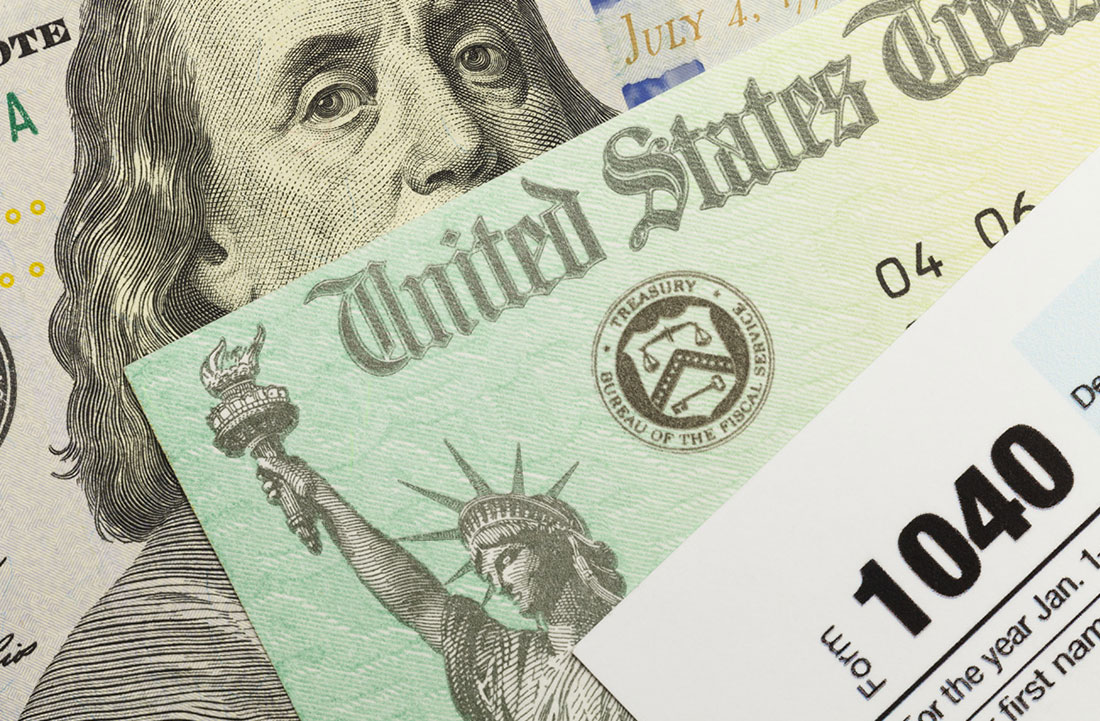Recognizing the Warning Signs of Tax Fraud
April 15, 2024

Tax season brings about a mix of emotions. On the one hand, you’re hoping for a decent tax refund that will unveil financial opportunities for you and your family. On the other hand, gathering tax documents, filing your return, and trying to steer clear of scams can be stressful. But what happens if you discover that you’re a victim of tax fraud before you’ve even filed your return? Tax fraud comes in many forms. While you might be able to identify and avoid common scams, identity thieves are always working hard behind the scenes. Let’s explore common red flags tied to tax fraud so that you’re prepared to deal with anything scammers throw at you.
Common Signals of Tax Fraud
While most tax-related scams originate through phone calls, emails, texts, or social media, red flags pertaining to tax fraud usually arrive when submitting your return or via the mail.
1. Denied Return
One of the most alarming signs of potential tax fraud is your return being rejected by the IRS because they claim you have already filed your taxes. This likely means that someone else filed a fraudulent return using your identity.
2. Unrecognized Tax Documents
Another major red flag is if you receive any tax forms you do not recognize, such as a W-2 or 1099, that are not from your employer or client. This typically indicates that fraudsters used your personal information to falsify documents and claim returns or benefits in your name.
3. Improperly Claimed Benefits
Another clear indication of tax fraud and potential identity theft is if you receive a 1099-G form. A 1099-G is issued to those who applied for and received unemployment and other government-related benefits during the calendar year. If you did not file for unemployment and receive a 1099-G, it could indicate that someone else used your identity to claim government assistance fraudulently.
4. IRS Communications
Receiving any unexpected communication from the IRS should raise instant suspicion. This could include a transcript or a letter regarding a tax return you did not file. Should you receive anything along these lines, address the communications immediately to prevent further fraud.
It’s critical to remember that the IRS will never contact you via phone, email, text, or social media. When beginning communications with a taxpayer, they will send correspondence through the mail.
Steps to Take if You Suspect Tax Fraud
Avoiding scams takes a bit of know-how and an understanding of how the schemes work. However, tax fraud can often be challenging to avoid because you rarely realize your identity was stolen until afterward.
If you spot any of the mentioned tax fraud red flags, follow these steps:
1. File Form 14039
If you believe you’ve been a victim of tax fraud, filing Form 14039 and promptly reporting it to the IRS is crucial. This form serves as an Identity Theft Affidavit and notifies the Department of Treasury and IRS of potential fraud.
2. Contact the IRS
Notify the IRS of suspected fraud immediately by calling the Identity Protection Specialized Unit at 1-800-908-4490. Swift action from you can help to alleviate the impact of the fraud on your finances.
3. File a Police Report
Report the identity theft to your local law enforcement authorities and file an official report. Doing so establishes a record of the fraud, which will be extremely useful during dealings with creditors, financial institutions, and credit bureaus.
4. Check Your Credit Report
Routinely monitor your credit report for any signs of fraudulent activity. You can request a free copy of your report from www.AnnualCreditReport.com. Review your report regularly for any unauthorized transactions or accounts.
5. Secure Your Identity
It’s essential to take proactive steps to protect your personal and financial information. Regularly update passwords for your online accounts, monitor your financial accounts and transactions, and ensure that your devices have adequate virus and malware protection in place. By taking these steps, you can significantly reduce the risk of your sensitive data being compromised by fraud.
We’re Here to Help!
Tax fraud can have significant repercussions on both your financial and personal well-being. By remaining vigilant and taking proactive measures, you can do your part to thwart attempts to steal your identity this tax season.
If you believe you are a victim of tax fraud or notice unusual activity on your account, please contact us immediately. You can visit any of our branch locations or call 888-777-9982 to speak with a team member.
Disclosures
-
This credit union is federally insured by the National Credit Union Administration.
-
Equal Housing Lender



